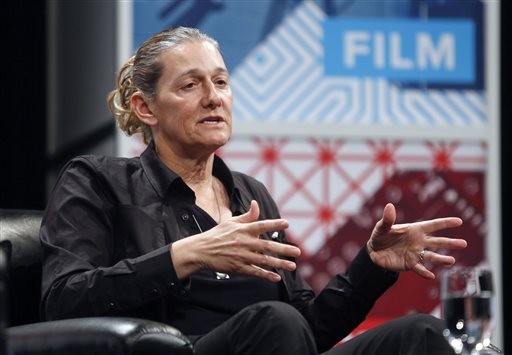Austin Ventures No Longer a Texas Giant Wrestles With Its Future Venture Capital Dispatch
Post on: 16 Март, 2015 No Comment

Venture Capital
Austin Ventures General Partner Chris Pacitti Austin Ventures
Austin Ventures was just about the only place to go for early-stage venture capital in the Austin, Texas, area when General Partner Chris Pacitti joined the firm in 1999, he recalls.
The firm made 35 venture investments that year in companies based in the Austin metropolitan area, far more than second-place TL Ventures, Mr. Pacitti’s old firm, which did eight, according to Dow Jones VentureSource.
“If we didn’t do a seed or early-stage deal, it didn’t get done,” Mr. Pacitti said.
The picture was much different in 2014. Austin Ventures still led the pack, but did only 11 deals involving Austin-area companies, barely surpassing Silverton Partners. a venture capital firm launched by a founding partner of Austin Ventures, which did 10 deals in the area, VentureSource data show.
Those numbers reflect changes in the Austin venture scene and in Austin Ventures, which recently disclosed it won’t put together another fund like its prior $900 million 10th pool. raised in 2008.
Of course, 1999 was a banner year not only for Austin-based technology companies and Austin Ventures, but for the venture industry nationally, as the dot-com bubble inflated. AV, as the firm is known, made a record number of initial investments that year, backing 34 U.S. companies for the first time, 15 of them outside the Austin area, according to VentureSource. Most of its initial investments nationally were in companies’ first rounds of venture capital.
Last year, reaching the end of the investment cycle for its 10th fund, AV made three initial investments, all in the Austin area. One was a seed round, one was a first round and one was a later-stage investment.
Meanwhile, the amount of venture investment in the Austin area increased during four of the past five years and the number of deals ranged from 76 to 89 a year, according to VentureSource. Last year, investors plowed $813 million into 75 deals, the highest amount since 2001.
The data indicate that the Austin market isn’t starved for venture capital. Mr. Pacitti says the region now has a raft of angel investors, three or four credible incubators and several Series A investors. In his view, the real capital gap, not only in Austin but across the U.S. save for Silicon Valley, is in what he calls midstage venture, a point at which a company has traction in its market and needs capital for growth but hasn’t yet hit a breakout that would draw big-time investors.
In addition to early-stage deals, Austin Ventures has long pursued a variety of other investment strategies, including rollups and midmarket buyouts. Its most recent, $900 million fund, a giant by venture standards, was an amalgam of these approaches.

Not only did it take AV more than five years to put that money to work but also the firm heard from its limited partners, which wanted “more-precise asset allocation,” Mr. Pacitti said. In other words, its investors desired to make their own decisions on whether to commit to various strategies rather than having a single fund making those choices.
AV’s middle-market team is looking to raise a new fund that would be aimed at buyouts of Texas companies. Austin Ventures declined to talk about that effort.
Mr. Pacitti said he tried to pull together a separate venture fund aimed at early-stage deals as well as midstage venture, similar to AV’s investments in Donuts Inc. a Seattle-based aggregator of Internet domain names, and SGN Games Inc. a Los Angeles mobile gaming company.
But he couldn’t drum up interest for more than half of the $200 million to $250 million he needed to execute that strategy. So Mr. Pacitti has turned his efforts to a so-called pledge fund focused on midstage venture that would raise capital on a deal-by-deal basis, leveraging the AV network of executives and entrepreneurs who advise companies and make angel investments.
He and three other AV partners have committed a total of $25 million, providing a financial base for investment vehicle, called AVX.Partners. Additional capital would come from members of AV’s network who thought a particular deal was worthwhile. Mr. Pacitti also wants to bring in institutional investors who would commit to participating in deals he selected.
The low fees and flexibility of pledge funds are attractive to some investors at a time when the traditional venture fund model is under growing pressure, especially in an early-stage market awash with seed-investment specialists and crowdfunding schemes.
“My experiment is, can I institutionalize this approach and can I scale it?” Mr. Pacitti said. “I think I’ll be in business in the spring…I’m not going to rush it.”














